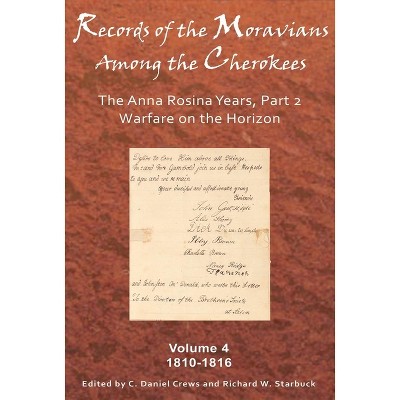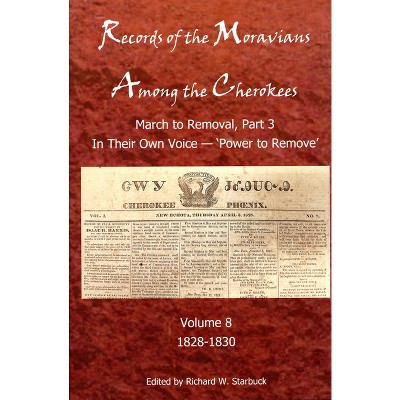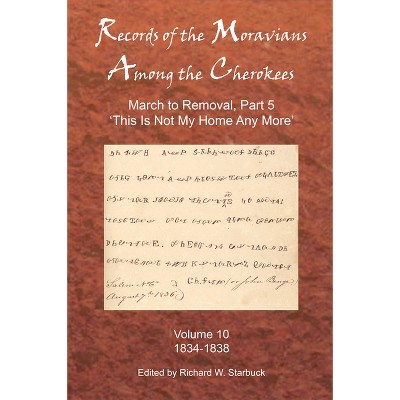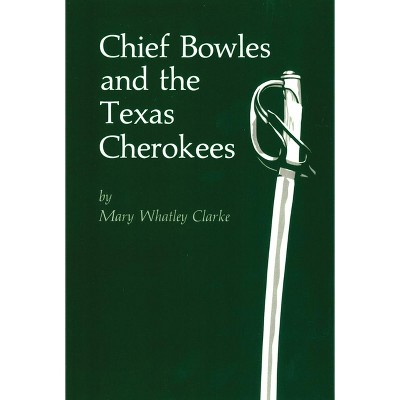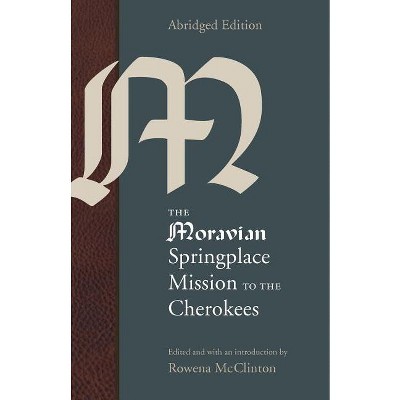Records of the Moravians Among the Cherokees, Volume 3 - by C Daniel Crews & Richard W Starbuck (Hardcover)

About this item
Highlights
- Using original diaries, minutes, reports, and correspondence in the Moravian Archives in North Carolina, the Records of the Moravians among the Cherokees series provides a rare account of daily life among the Cherokees throughout the nineteenth century.
- Author(s): C Daniel Crews & Richard W Starbuck
- 598 Pages
- History, Native American
Description
About the Book
Using original diaries, minutes, reports, and correspondence in the Moravian Archives in North Carolina, the Records of the Moravians among the Cherokees series provides a rare account of daily life among the Cherokees throughout the nineteenth century. Although written by missionaries, the records provide keen insight into Cherokee culture, society, and customs. Volume 3, spanning the years 1805 to 1810, chronicles the arrival of John and Anna Rosina Gambold to the mission.Book Synopsis
Using original diaries, minutes, reports, and correspondence in the Moravian Archives in North Carolina, the Records of the Moravians among the Cherokees series provides a rare account of daily life among the Cherokees throughout the nineteenth century. Although written by missionaries, the records provide keen insight into Cherokee culture, society, and customs.Volume 3, spanning the years 1805 to 1810, chronicles the arrival of John and Anna Rosina Gambold to the mission. Anna Rosina proved dedicated to the education of Cherokee children, and the mission took on a new life and character. The Gambolds soon won the people's affection and respect, and Chief Chuleoa, who at first opposed the mission, became their friend. These years also witnessed the tragic death of James Vann, the Moravians' benefactor among the Cherokees, and the mission's first successful baptism of a Cherokee into the Moravian Church.
Review Quotes
"The Moravian records contribution to Cherokee history is invaluable . . . [and] provides a body of work that gives us a look into our past and will help us better understand where we are going. The Cherokees are grateful to have these recordings of our history."--Wilma Mankiller, Principal Chief of the Cherokee Nation (1985-95)
Shipping details
Return details
Trending Non-Fiction






